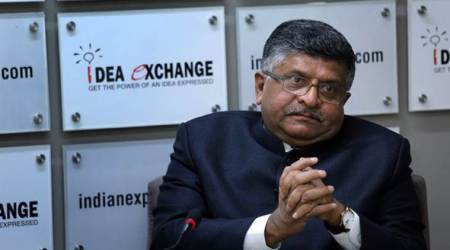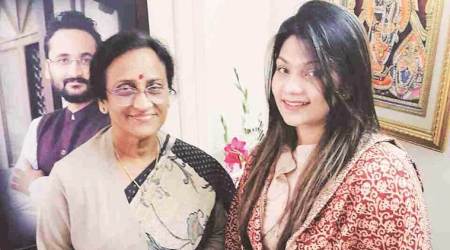 Justice Ranjan Gogoi in Ahmedabad Saturday. (Express photo)
Justice Ranjan Gogoi in Ahmedabad Saturday. (Express photo)
Underlining THE Supreme Court’s recent landmark judgments on triple talaq and transgenders, among others, Justice Ranjan Gogoi Saturday said the Supreme Court was “democratising the interface of power relationships, not only between state actors and citizens, but also between non-state actors and subjects, between two individuals and autonomous citizens in a way that has never been done before”.
Citing the triple talaq judgment, he said, “I don’t know why media and intelligentsia were quick to draw a parallel between Shayara Bano and Shah Bano. It is my earnest view that Supreme Court in Shayara Bano, that is triple talaq, did perhaps what it could not do in Shah Bano. It extended democratic ideals into a very intimate private sphere.”
“In Shah Bano ruling it is interesting to note that the same Supreme Court held that this appeal (Shah Bano) doesn’t involve the question of constitutional importance but in triple talaq, the court tested the practice of unilateral talaq on the touchstone of this condition. In Shah Bano, the court didn’t seem it to be an issue of gender equality but in Shayara Bano, it left no stones unturned when it held triple talaq inequitable in terms of Article 14,” he said.
He said that on issues such as state intervention in personal life or whether it even could and if an individual had the right to determine identity, “the court seems to have taken meaningful leads towards the ideal idea of India if not towards the new India”.
Delivering the 13th Justice P D Desai Memorial Lecture at the Gujarat High Court on “Constitutional Realism and Constitutional Idealism: Is the Supreme Court on the Cusp of Evolution?” Justice Gogoi said the Supreme Court has tended more towards “idealism” in recent years compared to the “realism” of the past due to changing socio-political and socio-economic circumstances in the country.
He said that through the shift, the Supreme Court was gradually enriching the culture of “constitutionalism”. “We are realising that injustices today are not borne out of poverty and illiteracy alone; they are borne out of different identities, diverse opinions, aspirations for autonomy, and desires to be a free thinker… However good or bad it may appear to be, we can’t help it, this is a new order,” he said.
According to Justice Gogoi, the Supreme Court was “beaming new light into the promises of justice, liberty, equality and fraternity that we the people of India have made to one another” and cited the judgement on triple talaq as an example.
He pointed to the transformations the country has witnessed over the years to highlight changes in the approach of the Supreme Court. “India is transforming from socialism to acquire an identity more new-liberal, if we may call it. You show a belief in the need for economic growth, at the same time maintaining traditional liberalistic values,” he said.
“This is happening in the socio-political and socio-economic context. The rise of the capitalist class has made India extremely susceptible to corruption and consequent criminalisation of politics and economy and aberrations in good governance,” he said. He said that the “watchdog vacuum” created due to these changes were being filled by the judiciary.
On January 12, Justices Gogoi, J Chelameswar, Madan B Lokur and Kurian Joseph, the four most senior judges of the Supreme Court, had questioned the conduct of Chief Justice of India Justice Dipak Misra, especially over allocation of cases.
Recalling the judgment in the case of law student Shreya Singhal, whose petition led to striking down of against section 66A of IT act in the apex court, Justice Gogoi said that “it was a landmark and progressive decision. It safeguarded dissidents, it safeguarded plurality of thought and diversity of opinion. It safeguarded democratic ethos. It took the side of citizens as against the state. It celebrated freedom.”
“It was a shinning commemoration of what we fought for…Freedom. Ladies and gentlemen it will be interesting to watch the developments that can reasonably be anticipated if they have not already manifested…By the reality of the day including commercialisation of media,” he said.
Referring to arguments that the judiciary was “entering the domain that has traditionally been reserved for the executives and the legislature”, he said, “It is not for me comment but the court’s character and functioning will have to be perceived in the light of prevailing circumstances.”
For all the latest India News, download Indian Express App
























